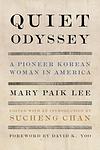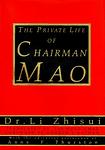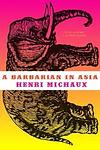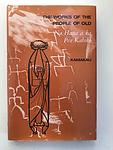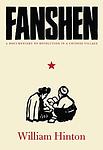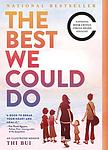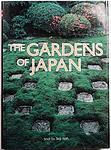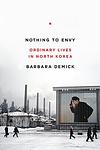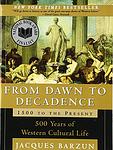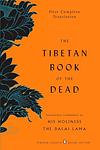The Greatest "Nonfiction, Asian History" Books Since 1900
Click to learn how this list is calculated.
This list represents a comprehensive and trusted collection of the greatest books. Developed through a specialized algorithm, it brings together 300 'best of' book lists to form a definitive guide to the world's most acclaimed books. For those interested in how these books are chosen, additional details can be found on the rankings page.
Genres
Asian History is a category of books that focuses on the historical events, cultures, and societies of Asia. This category includes books that cover a wide range of topics, including the ancient civilizations of China, Japan, and India, the rise and fall of empires, the impact of colonialism, and the modernization of Asian countries. It also includes books that explore the social, political, and economic changes that have shaped the region over time. Overall, Asian History provides readers with a comprehensive understanding of the rich and diverse history of Asia.
Countries
Date Range
Reading Statistics
Click the button below to see how many of these books you've read!
Download
If you're interested in downloading this list as a CSV file for use in a spreadsheet application, you can easily do so by clicking the button below. Please note that to ensure a manageable file size and faster download, the CSV will include details for only the first 500 books.
Download-
26. Quiet Odyssey by Mary Paik Lee
This book is a poignant memoir that chronicles the life of a Korean immigrant family in early 20th-century America. Through the lens of a young girl, the narrative unfolds the hardships, discrimination, and poverty they faced while maintaining their dignity and striving for a better life. The family's journey from a tumultuous homeland to an uncertain future in the United States is marked by resilience and perseverance, as they navigate cultural barriers and the constant struggle to assimilate while preserving their identity. This personal account provides a unique perspective on the broader Asian American experience during a time of significant social and political change.
-
27. The Road Through Miyama by Leila Philip
The book is a memoir that recounts the author's experience living in the rural Japanese village of Miyama, where she apprenticed with a traditional potter. Immersing herself in the rhythms of rural life and the demanding discipline of pottery, she navigates cultural barriers and finds a deep connection to the landscape and its people. Through her journey, the author explores themes of tradition, craftsmanship, and the intricate relationship between human endeavor and the natural world, all while painting a vivid portrait of a community holding onto its heritage amidst modernity.
-
28. Daughter Of Persia: A Woman's Journey From Her Father's Harem Through The Islamic Revolution by Sattareh Farman-Farmaian
This memoir recounts the extraordinary life of a woman born into a privileged family in early 20th-century Iran, who witnessed the dramatic shifts of her country's social and political landscape. Growing up in a polygamous household, she broke with tradition to pursue an education abroad, later returning to Iran to become a pioneering advocate for social reform and women's rights. Her story spans the rise and fall of the Pahlavi dynasty, the advent of the Islamic Revolution, and her subsequent exile, offering a personal lens on Iran's complex history and the role of women within it. Through her journey, she embodies the struggles and resilience of a nation in the face of modernity and change.
-
29. Burmese Looking Glass by Edith Mirante
The book is a gripping memoir that chronicles the author's daring travels and activism in Burma (Myanmar) during the 1980s. It delves into the complex political landscape of the country, highlighting the struggles of ethnic minorities and the brutality of the military regime. The author's journey is both a personal quest and a political mission, as she ventures into rebel-held territories, witnesses human rights abuses, and works to bring international attention to the plight of the Burmese people. Her narrative weaves together adventure, compassion, and a deep commitment to justice, offering a unique perspective on a nation fraught with conflict and the resilience of its people.
-
30. The Private Life of Chairman Mao by Li Zhi-Sui
This book is a memoir written by a personal physician who served Chairman Mao for over two decades. It offers an unprecedented and intimate look into the life and character of the powerful Chinese leader. The book reveals Mao's personal habits, manipulative nature, political maneuvers, and his disregard for human life in the pursuit of his goals. It also uncovers the power struggles within the Chinese Communist Party, providing a unique perspective on China's political history.
-
31. An Area Of Darkness by V. S. Naipaul
The book is a travelogue that delves into the author's journey through India, a country that is both his ancestral homeland and a place of discovery for him. Through a series of vivid observations and encounters, the narrative explores the complexities, contradictions, and profound cultural richness of India. The author grapples with the legacies of colonialism, the challenges of modernity, and his own personal search for identity. The text is characterized by its introspective and often critical perspective, offering a portrait of a nation at a crossroads and a writer's quest to understand his own heritage.
-
32. From A Chinese City by Gontran de Poncins
In this travelogue, the author offers an intimate glimpse into the daily life and culture of a pre-World War II Chinese city, far removed from Western influence. Through vivid descriptions and personal anecdotes, the narrative captures the essence of the city's streets, its people, and their traditions, painting a rich tapestry of local customs, beliefs, and the social dynamics of the time. The author's journey not only explores the physical spaces of the city but also delves into the philosophical and spiritual undercurrents that define the heart of its civilization, providing a unique and timeless insight into a way of life that stands at the crossroads of change.
-
33. Slowly Down The Ganges by Eric Newby
This travelogue recounts the author's adventurous journey down the Ganges, one of the great rivers of the Indian subcontinent. With humor and keen observation, the narrative captures the diverse landscapes and vibrant cultures encountered along the riverbanks. Through a series of mishaps, challenges, and encounters with local inhabitants, the author paints a vivid picture of life in India, reflecting on its history, religion, and the profound significance of the river to the people who live along its course. The book is as much a personal quest as it is an exploration of a place and its people, offering insights into the complexities of a rapidly changing country while navigating the waters of one of its most sacred rivers.
-
34. Oriental Despotism by Karl August Wittfogel
"Oriental Despotism" presents a theory that ancient bureaucratic societies, particularly those in Asia, developed as a result of the need to manage large-scale irrigation systems. The author argues that the control of water resources in arid regions led to the creation of centralized, autocratic power structures, which he terms "hydraulic despotisms." These governments wielded significant control over their subjects, as the management and distribution of water was crucial for agriculture and survival. The book explores how this form of governance influenced the political and social structures of various Eastern civilizations, contrasting them with Western societies that developed under different ecological conditions.
-
35. A Barbarian In Asia by Henri Michaux
This travelogue presents a series of vivid, often surreal observations and reflections on Eastern cultures through the eyes of a Western traveler, who traverses the Asian continent with a perspective that oscillates between fascination and alienation. The narrative is characterized by its poetic style and ethnocentric critique, offering a candid, at times controversial, account of the customs, people, and spiritual practices encountered. The work captures the interplay of the barbarian's internal reflections and the external exoticism of a world vastly different from his own, creating a complex and introspective journey through 1930s Asia.
-
36. The Works Of The People Of Old by Samuel Manaiakalani Kamakau
"The Works of the People of Old" is an insightful compilation of traditional Hawaiian knowledge and practices, meticulously gathered from native elders and historical sources. The book delves into various aspects of pre-contact Hawaiian culture, including social customs, religious beliefs, and practical skills such as fishing, farming, and medicine. Through detailed descriptions and narratives, it preserves and shares the rich heritage of the Hawaiian people, offering readers a deep understanding of the wisdom and ingenuity embedded in their ancestral ways of life.
-
37. Hiroshima Notes by Kenzaburō Ōe
"Hiroshima Notes" is a poignant collection of essays that delve into the aftermath of the atomic bombing of Hiroshima, exploring the enduring impact on the survivors and the city itself. The author, through a series of visits to Hiroshima in the 1960s, reflects on the moral and ethical implications of nuclear warfare, the resilience of the human spirit, and the responsibilities of humanity. Through interviews with survivors and thoughtful contemplation, the book provides a deep and multifaceted perspective on suffering, healing, and the quest for peace in the shadow of one of history's most devastating events.
-
38. How We Won The War by Võ Nguyên Giáp
"How We Won The War" is a firsthand account by a prominent military leader who orchestrated one of the most surprising victories in modern warfare. The book provides an insightful analysis of the strategies and tactics used during a prolonged conflict against a more technologically advanced opponent. Through a combination of guerrilla warfare, political insight, and the mobilization of the rural population, the author demonstrates how asymmetric warfare and a deep understanding of their own culture and terrain led to their success. The narrative not only explores military engagements but also emphasizes the importance of political and public support in achieving victory.
-
39. China Along The Yellow River by Cao Jinqing
This book provides a detailed sociological examination of rural China through the lens of villages along the Yellow River. The author, an urban intellectual, immerses himself in the daily lives of rural residents, uncovering the profound economic struggles, social changes, and the enduring traditions that define their existence. Through vivid narrative and insightful analysis, the book explores the impact of rapid industrialization and urbanization on these communities, offering a poignant look at the disparities between China's urban and rural landscapes.
-
40. Fanshen by William Hinton
The book is a detailed account of the agrarian reforms and social upheaval that took place in a small Chinese village during the 1940s, as the Chinese Communist Party sought to overthrow feudal systems and implement socialist ideologies. Through extensive firsthand observation and participation, the author provides an in-depth look at the process of "fanshen," which translates to "turning over," reflecting the profound transformations in land ownership, class structure, and power dynamics among the villagers. The narrative captures both the struggles and the successes of the villagers as they navigate the complexities of reform and revolution, offering a nuanced perspective on the broader impacts of political change in rural China.
-
41. The Best We Could Do: An Illustrated Memoir by Thi Bui
This illustrated memoir captures the story of a Vietnamese family who fled to America after the fall of South Vietnam in the 1970s. The narrative traces their journey and struggles as refugees, while also delving into the family's complex history and relationships. The author uses her own experiences as a new mother to explore themes of parenthood, identity, and the enduring effects of displacement and trauma.
-
42. The Gardens Of Japan by Teiji Itoh
"The Gardens of Japan" explores the art and aesthetics of Japanese gardens, tracing their development from ancient times to the modern era. The book delves into various garden styles, from the serene rock gardens of Zen Buddhism to the ornate tea gardens and expansive stroll gardens. Richly illustrated and detailed, it examines the philosophical and cultural underpinnings that have shaped garden design in Japan, highlighting the intricate interplay of nature, spirituality, and art. The author provides insights into the symbolic elements of these gardens, their use of space and natural materials, and the meticulous care that goes into their creation and maintenance, offering readers a deep appreciation of this enduring art form.
-
43. Nothing to Envy by Barbara Demick
"Nothing to Envy" is a non-fiction narrative that provides an in-depth look at life in North Korea through the eyes of six defectors. The book covers a span of 15 years, during which the country faced a devastating famine. It explores the lives of ordinary citizens, their indoctrination, their gradual realization of the truth about their government, and their decision to defect. The book paints a vivid picture of the harsh realities of life under a totalitarian regime and the struggle for survival and escape.
-
44. Iron & Silk by Mark Salzman
This book is a memoir that recounts the experiences of an American teacher and martial artist who spends two years in China during the early 1980s. The narrative delves into the cultural exchanges and misunderstandings between East and West as the author teaches English and studies kung fu with master practitioners. Through a series of vignettes, the memoir paints a portrait of a China still recovering from the Cultural Revolution, exploring themes of connection, tradition, and the nuances of human relationships across a vast cultural divide. The author's journey is one of self-discovery, as he navigates the complexities of life in a foreign land, building friendships and gaining insights into the subtleties of Chinese culture and society.
-
45. Chasing The Monsoon by Alexander Frater
In this travelogue, the author embarks on a captivating journey following the Indian monsoon as it sweeps across the subcontinent. Starting from the southern tip of Kerala and moving up towards the northeastern state of Assam, he weaves together a tapestry of diverse experiences, meeting a variety of people and observing the profound impact that this dramatic weather phenomenon has on the land and its inhabitants. Along the way, the narrative is enriched with historical context, personal anecdotes, and vivid descriptions of the landscape, ultimately painting a portrait of the monsoon that is as much about the human spirit as it is about the forces of nature.
-
46. The Silent Steppe: The Story Of A Kazakh Nomad Under Stalin by Mukhamet Shayakhmetov
"The Silent Steppe: The Story Of A Kazakh Nomad Under Stalin" is a gripping memoir that chronicles the life of a Kazakh nomad during the brutal reign of Stalin. The book offers a firsthand account of the hardships, persecution, and forced collectivization experienced by the Kazakh people under Soviet rule. Through the eyes of the author, readers gain insight into the resilience, traditions, and struggles of the Kazakh nomadic culture in the face of political oppression.
-
47. From Dawn To Decadence : 1500 To The Present by Jacques Barzun
This book offers a sweeping overview of Western cultural life from the Renaissance to the early 21st century. It delves into the pivotal events, ideas, and personalities that have shaped the modern world, exploring how cultural movements and the evolution of thought have influenced society's development. The narrative weaves through various disciplines, including art, music, politics, and science, to provide a comprehensive understanding of the forces that have led to both the achievements and challenges of Western civilization. Through a rich tapestry of historical analysis, the work invites readers to reflect on the complexity and dynamism of the human experience over the last five centuries.
-
48. The Great Divergence by Kenneth Pomeranz
This book challenges traditional views on the rise of the Western world's economic dominance, arguing that until the late 18th century, parts of Europe, China, Japan, and the Islamic world were similarly advanced. The author contends that geographical and ecological factors, rather than inherent cultural or technological superiority, played a crucial role in Europe's industrialization. Specifically, the availability of coal in Britain and the exploitation of the New World's resources are highlighted as pivotal in creating the "Great Divergence" between the West and the rest of the world. Through this lens, the book reevaluates the roots of global inequality and the factors that have shaped the modern economic landscape.
-
49. Tibetan Book Of The Dead by Robert Thurman
The book provides a comprehensive English translation and interpretation of the Tibetan Buddhist text traditionally read aloud to guide the souls of the deceased during the period between death and rebirth. It delves into the profound philosophical and spiritual teachings that outline the stages of dying, death, and rebirth, offering readers insights into Tibetan rituals and beliefs about life, death, and reincarnation. The translation aims to make these ancient teachings accessible to a modern audience, emphasizing the importance of living a meaningful life and preparing for a mindful death.
-
50. Dawn To The West by Donald Keene
"Dawn to the West" is a comprehensive analysis of Japanese literature from the late 19th century through the 20th century, exploring both fictional and non-fictional works. The book delves into the evolution of Japanese literature as it underwent profound transformations influenced by Western literary traditions, while also maintaining its unique cultural identity. It examines the works of numerous Japanese authors, providing insights into their contributions to modern literary themes and techniques, and discusses how historical events, such as World War II, shaped the literary landscape of Japan. This scholarly work is essential for understanding the development and nuances of modern Japanese literature.
Reading Statistics
Click the button below to see how many of these books you've read!
Download
If you're interested in downloading this list as a CSV file for use in a spreadsheet application, you can easily do so by clicking the button below. Please note that to ensure a manageable file size and faster download, the CSV will include details for only the first 500 books.
Download